Understand learning profiles before hiring
EntrepreneurshipThe average 25-year-old has already worked 6.3 jobs, and will have 12-15 jobs before their working career is finished. The portrait of the job-hopping millennial is a stark difference to Gen X and Boomer workers who may have stayed with the same job and employer for decades. Another study found that millennials have almost twice as many job and organizational changes as Gen Xers, and almost three times as many job changes as the Baby Boomers and Matures.
With the creation of online job boards, there’s unprecedented visibility into all the opportunities around us. This means we’re more likely to question whether we’re working on the “best” thing at the best place at any given time. And now more than ever, many of us have the luxury of working on what we want to and not just because we have to.
Given the increased movement in the overall job market today, it’s important to look at how we make decisions when it comes to work. The key question is: when are we happy with our jobs and when are we not?
I believe the answer is rooted in learning: we are happiest with and engaged in our work when our personal learning profile matches that of our jobs and tasks at hand.
Align the learning profiles of employees and jobs
I often characterize an individual’s learning profile in three dimensions:
- Attitude: your passion for learning
- Capacity: your raw intelligence, IQ, and talent for learning
- Impact: your ability to apply the theories of what you learn into practice
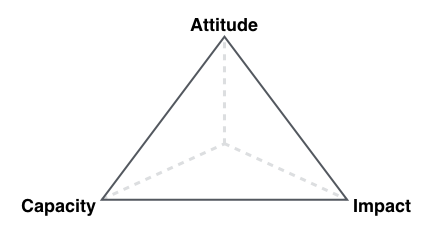
Similarly, a job’s learning profile can be characterized at the very least by:
- Challenge: What does the on-boarding process look like and are you continuously challenged thereafter? The graph below illustrates different learning curves as a function of time.
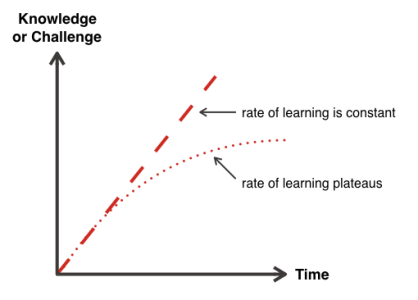
- Depth: Are you learning about various subjects that touch many parts of the organization or are you becoming an expert on a particular topic?

My hypothesis: people remain engaged when their learning profile matches that of their job.
The takeaway for founders and hiring managers
So, what’s the implication for founders and hiring managers? We all understand the high costs of recruiting, onboarding, and knowledge transfer associated with high employee churn rates.
Can employers assess a candidate based on his or her learning profile in order to improve employee satisfaction and cut down turnover?
Here are a few hiring examples to consider:
Case 1: Over-optimizing for sheer intelligence
This occurs when you hire someone who loves learning and has a great aptitude for it, but you match him or her to a job with little challenge or depth.
A few years ago, when at Insight, a hiring manager told me, “Ange, I don’t need the ‘crème de la crème’ data scientist. I just need someone who will get the job done”. In retrospect, I think this manager meant, “I need a competent and efficient person who would be happy with less intellectually-stimulating work every day.”
While it’s natural for us to want to hire the “10x employee”, at what times is this not the best strategy? Is it even possible or sustainable to keep the smartest, highest-desire-to-learn individuals around given that there is also a “cost of switching” within your own company? How do you systematically engage your mitochondria employees (Sarah Tavel’s description of employees who add value beyond their job description and responsibility)?
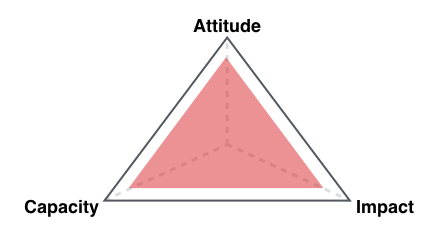
Case 2: Assuming that people who are really smart want to take on the most challenging tasks
Just because someone has a great capacity to learn doesn’t necessarily mean that they want to be challenged daily. Some of the smartest people I know prefer to adopt a clock-in/clock-out mentality. There’s nothing wrong with this. At any given stage in life, we each have our own personal reasons and values for what work and life outside of work mean to us. Don’t assume that a smart person automatically wants the most challenging position available.
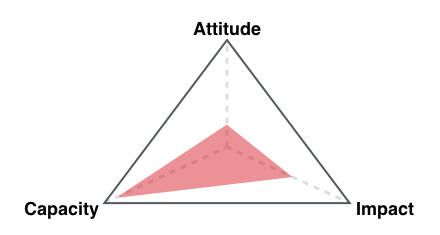
Case 3: Bringing in the specialist who loves the science more than the engineering
We’re starting to see companies working on emerging technologies (VR, blockchain, drones/robotics, etc.) that are founded on hardcore mathematics and science. As an another example, the excitement around messaging bots have founders looking for expertise in artificial intelligence and machine learning at leading research groups. While academics can be strong candidates given their passion for and capacity to learn, it’s important to assess where they are on the “impact” scale: do they enjoy applying their special powers, or do they prefer the rigour of developing more theory (where the latter may be counter to moving the needle for your fast-growing startup)?
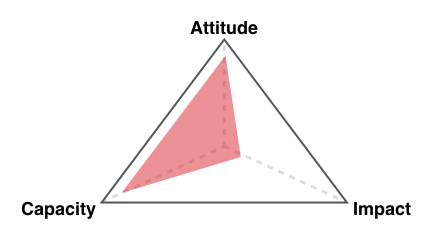
These are just 3 cases; no doubt you can think of several more situations where a learning misalignment happens and may be costly to your organization. It’s also important to note that there is no “good “ or “bad” profile in describing an individual along these axes. This is simply a visualization of one’s preferences and hopefully, paints a picture of how differences in learning profiles and opportunities to learn at work may be synergistic or clash.
In all honesty, I don’t know how we can match someone’s learning profile to their job. There is a lot to figure out here: how to quantify something that is naturally “unquantifiable” and then measure job suitability and match it accordingly. If I were ever to pursue a second PhD, I’m sure I’d end up working on this topic (I took a similar approach in my Master’s thesis when I mapped people’s financial risk tolerance to their portfolio of stocks).
While so many companies today are focused on solving the recruiting problem to combat employee churn, I’d love to meet people/startups who are tackling the problem of employee engagement based on learning in a scalable way. At the very least, I’d like to know if anyone out there is on the same page with me when it comes to the importance of aligning learning profiles.
Finally, I’m aware that other important parts of employment lead to churn, like company culture and values, financial compensation, etc. However, I truly believe that learning is an important aspect to this picture and the future of the workplace.